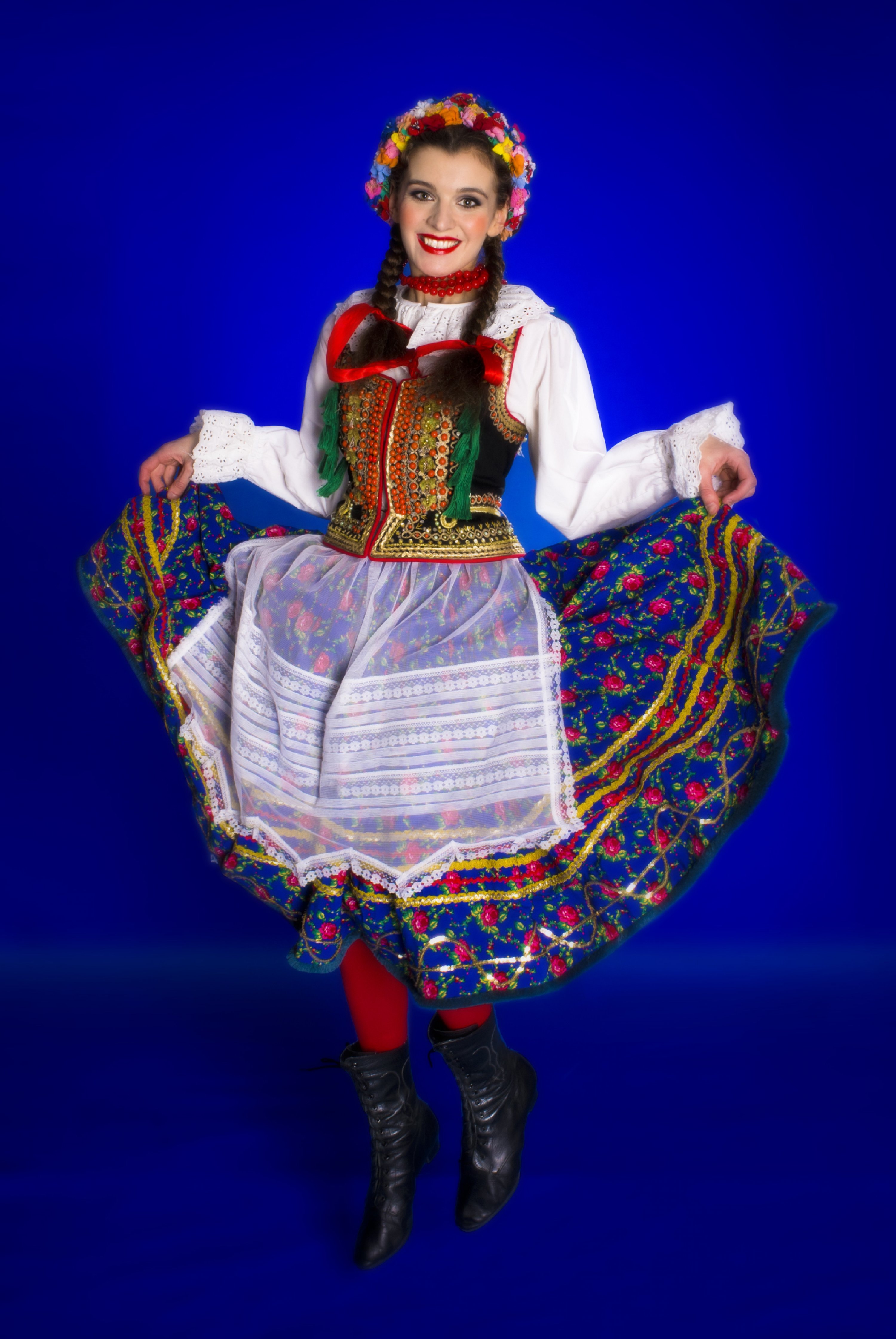Irena Kalicka
untitled from the series The horse you see is the horse you get (New Athens)
FSP ING 0196
New Athens (1745) by the priest Benedykt Chmielowski, which inspired Kalicka’s photography cycle, is the apotheosis of Polishness. Chmielowski’s patriotism shades into chauvinism, as in the pages of New Athens the splendour of the author’s homeland is contrasted with the barbarism of other nations or entire continents. Chmielowski was also a local patriot, referring to his small native country as “Kraków, known as the second Rome.” Kalicka’s self-portrait in the folk costume of a Kraków woman is the most stereotypical “postcard from Kraków.” The plastic figure of a Kraków woman, seemingly from a Cepelia arts and crafts shop, looks as if she had leapt in a folk dance straight out of an ad for sausages. The subject is herself photographed like a product, in artificial light against a garish background. Kalicka captures the essence of the cheesy, saccharine version of Poland, a contemporary version of the image created by Chmielowski, idealized to the level of impossibility.
Irena Kalicka
b. 1986, Krakow
Photographer, filmmaker, collage artist. Graduate of the Faculty of Photography at the Łódź Film School. Kalicka often photographs improvised or staged situations, much like theatrical productions. She creates photographic tableaux vivants, presentations of canonical motifs from art history brought to life, in which the artist herself poses along with her friends. She alludes to literary and anthropological texts in her works, which also include numerous symbols, self-quotations, and mythological, religious and pop-culture references. She eagerly mixes orders and registers, incorporating kitsch and the aesthetics of intentional error. She uses stylized form to raise contemporary themes associated with identity and its stereotypical perception. She lives and works in Kraków.
b. 1986, Krakow
Photographer, filmmaker, collage artist. Graduate of the Faculty of Photography at the Łódź Film School. Kalicka often photographs improvised or staged situations, much like theatrical productions. She creates photographic tableaux vivants, presentations of canonical motifs from art history brought to life, in which the artist herself poses along with her friends. She alludes to literary and anthropological texts in her works, which also include numerous symbols, self-quotations, and mythological, religious and pop-culture references. She eagerly mixes orders and registers, incorporating kitsch and the aesthetics of intentional error. She uses stylized form to raise contemporary themes associated with identity and its stereotypical perception. She lives and works in Kraków.
